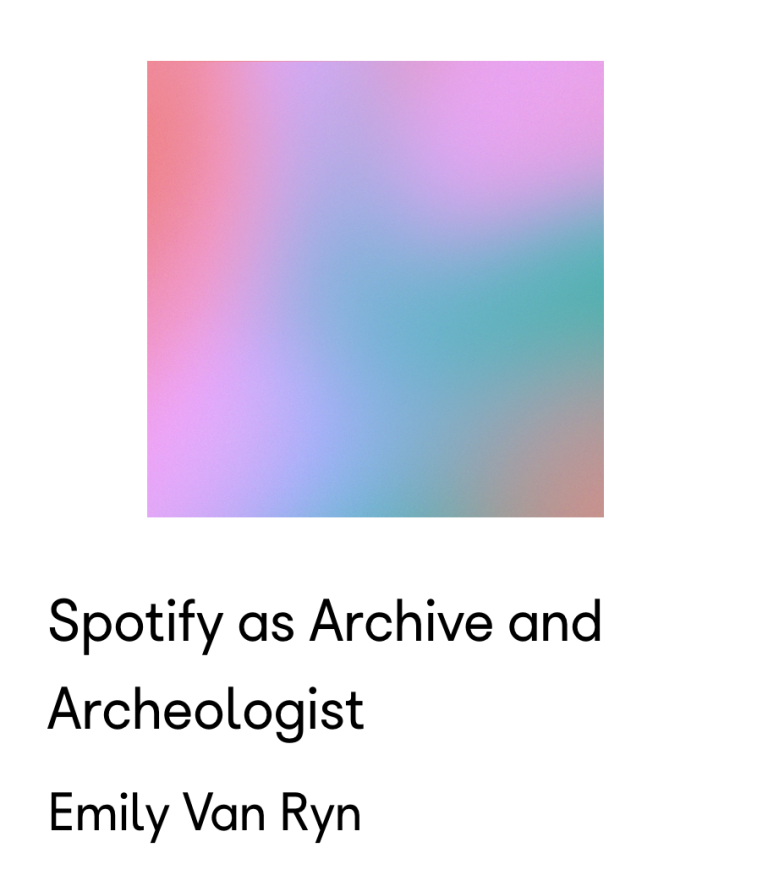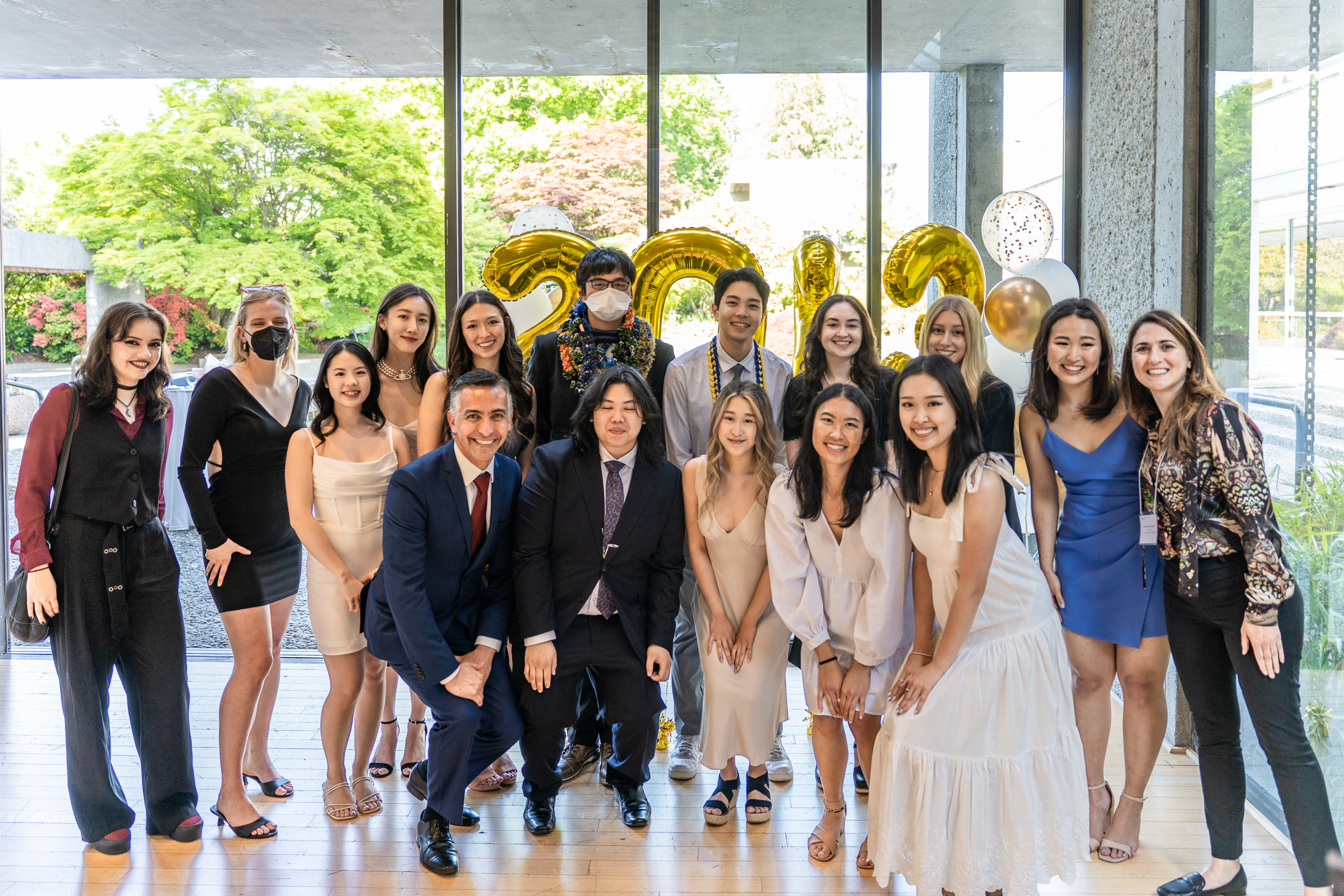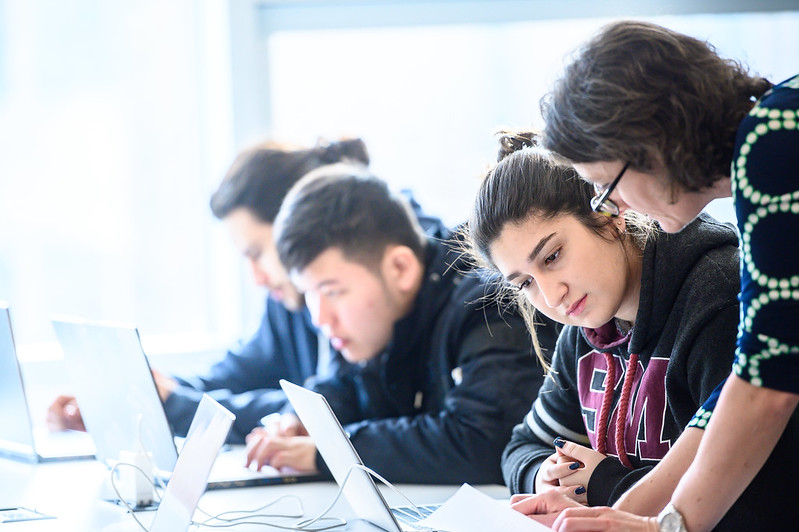

As a Class of 2021 graduate, Emily shares how the UBC Bachelor of Media Studies program taught them how to express social justice issues in a creative way, fostered their interest in media theory and how they discovered a new passion for their future career in psychology with a Media Studies lens.
Drawn to BMS for its Unique Interdisciplinary Studies
Originally from Minneapolis, Minnesota, Emily was looking for a university that would match their passion for media studies and communications. They found that local programs in media were limited in scope and topics.
This is when they learned about the University of British Columbia’s Bachelor of Media Studies program that aligned with their interest in pursuing diverse topics in media – Emily was excited to see a program where students could develop an interdisciplinary Media Studies skill set. They also found it valuable to be a part of a cohort as they could make life-long friendships over the span of just four years.
Emily sums it up as, “[The BMS program] has it all in an undergraduate degree.”
Discovering a Passion for Media Theory
In a program that offers a unique blend of practice, theory, and research across eight media-related disciplines, the interdisciplinary aspect of BMS allowed Emily to learn and discover new skills and interests.
The diversity of BMS courses allowed them to see the various careers they could pursue and broaden Emily’s mind to what they were capable of, and the niche communities they could enter with the experience they had from the foundational Media Studies knowledge.
“It opened up my world. It’s [Media Studies] a part of everything.”
Much to their own surprise, Emily’s academic interests evolved from when they first started the program. They entered university expecting to pursue publishing in fashion, and graduated with a new passion for exploring psychology through a Media Studies lens when they were introduced to media theory through their BMS courses.
The BMS Core Course ENGL 232: Approaches to Media Studies allowed Emily to learn about critical, historical, philosophical, and visual media theory. It changed the way that Emily saw the world, and it was where they discovered an interesting intersection between media and psychology – how the usage of media affects people’s psyches.
Learned to Explore Social Justice Issues in an Artistic Way
The BMS program gave Emily the language to explore social justice issues in an artistic way. Through their studies, they found that their artistic inspiration shifted from focusing on individual experiences to creating art that was a reflection of society.
In their third year, Emily came together with a group of students who were interested in creating impactful art to form the HoundsTooth Art collective. Together, they submitted a design to the UBC Brushes and Buchanan contest where students can help amplify the conversation on climate justice by proposing a design that connects with the UN Sustainable Development Goals. The HoundsTooth Art collective won the contest and as their prize, they had the opportunity to paint the Buchanan pillars with their winning design, and donate $500 to a charity of their choice – Ecojustice Canada.
Emily was proud to be able to bring awareness to important issues that matter to them through their art, such as the injustice that women in the Global South face as they bear the brunt of the burden of climate change.


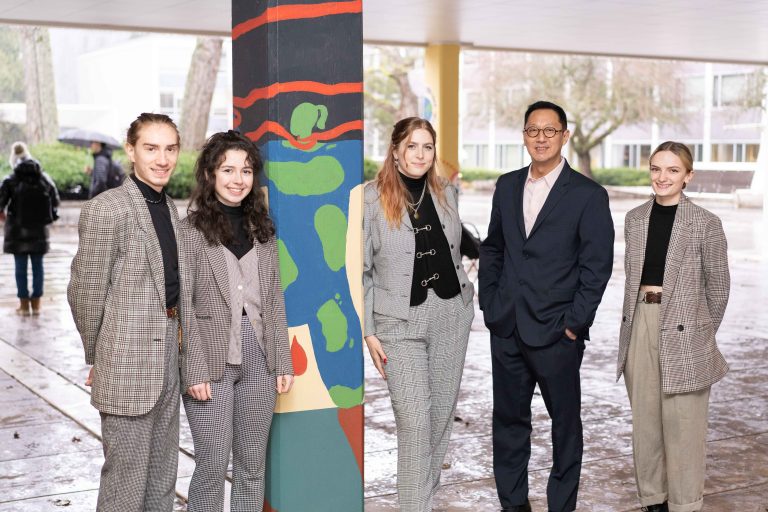

Photograph of The HoundsTooth Art collective and Santa J. Ono at the Buchanan pillar.
They also published an article that they had written for the BMS Core Course ENGL 332: Approaches to Media History in the BMS program’s undergraduate journal Beacon: UBC Journal of Media Studies. Called “Spotify as Archive and Archeologist”, Emily writes about the changing nature of storing and sharing music, using Spotify as a case study to argue that music streaming platforms are simultaneously archives and sites of media archaeology. They use Jussi Parikka’s text What is Media Archaeology? to explore the ways in which Spotify functions as a site of media archaeology, examining the platform’s curated playlists and personal-playlist-creating algorithms. Also touching on media scholar Walter Benjamin’s question of the aura, Emily asserts that despite what might be lost in the shift to digital, the creation of playlists remains an incredibly meaningful act.
Thumbnail of Emily Van Ryn’s article, “Spotify as Archive and Archaeologist”, published on Beacon: Journal of Media Studies.
Getting Involved in the Campus Community
Alongside their studies, Emily was also involved in various community-building activities. They expressed their passion for social justice by interning at the UBC AMS Sexual Assault Support Centre (SASC) which they share was “a very powerful experience” to help advocate justice for survivors of sexual assault.
Emily was also proud to be part of the program’s inaugural issue of Beacon: UBC Journal of Media Studies through their role as an Editor, and then Senior Editor for the journal’s second publication. “It was a really cool experience that I hope many students will get to be a part of. You get to work with younger students, work with your peers in the editorial team, and review other students’ works. It’s also helpful to have this experience when applying to jobs or graduate school in the publishing field.”
As Vice-President Internal of the Media Studies Student Association (MSSA), Emily enjoyed helping to create connections between BMS students in all years of the program through helping to liaise between all the executives, coordinate meetings, and documenting meeting minutes for future reference to support the fulfillment of MSSA’s annual initiatives and events.
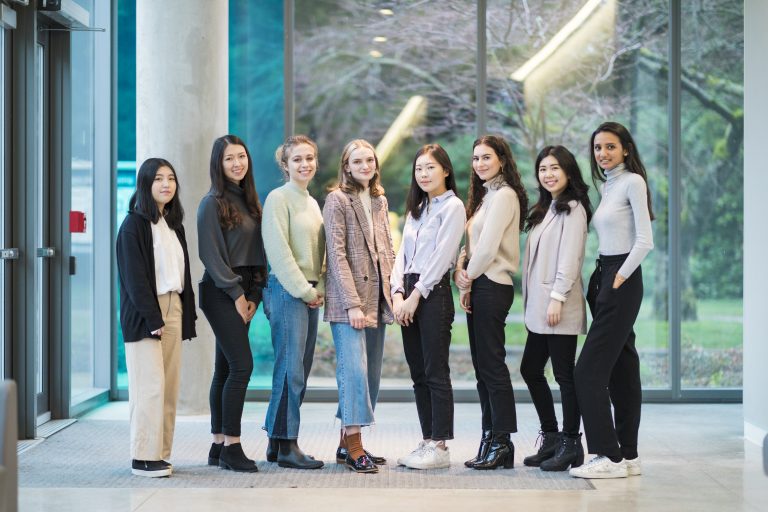

Photograph of the Media Studies Student Association 2019-2020 Academic Year Executive Members.
Pursuing Graduate Studies in Psychology with a Media Studies Lens
Taking their theoretical and research interests to the intersection of media studies and psychology, Emily plans to pursue further studies in integral counselling with a media theory lens – a career path sparked by a conversation they had with BMS Professor Dr. Richard Cavell.
Emily is interested in exploring how modern media engagement and practices impact mental health (for example, what it means to be connected to so many people through social media), and subsequently, the best ways to support media users.
“I would get to pursue two of my biggest passions. Having a Media Studies undergraduate degree gives me a unique insight into psychology and I’m excited to explore that.”
Emily would also like to shout out Stop Line 3 Pipeline, an organization that is fighting against a proposed pipeline responsible for the largest inland oil spill in the US.
“The BMS program gave me an experience I don’t think any other comparable media program could have. It gave me room to explore what I liked and didn’t like while keeping me grounded in the essential themes and issues inherent to media studies. It’s a unique program and if you are looking to broaden your horizons and open yourself up to new ways of engaging with the world, this program is for you.” – Emily Van Ryn
To view more of Emily’s work, please visit their website or social media pages:
https://emilyvanryn.myportfolio.com/
@emily.vanryn on Instagram
@houndstoothart on Instagram
